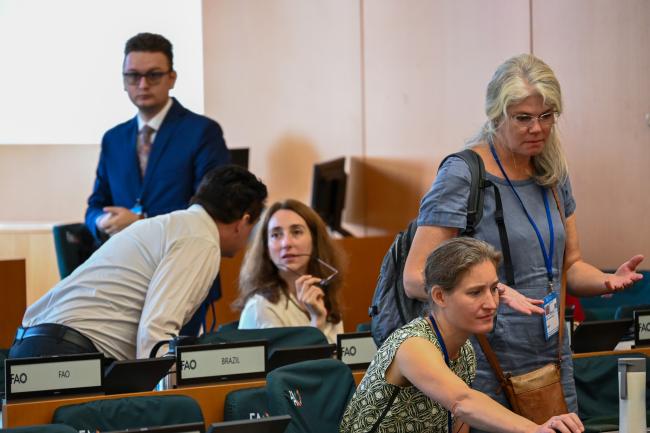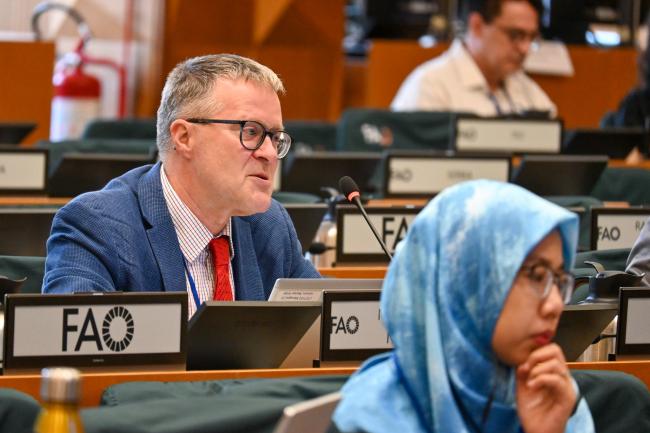Chemicals are widely used because they can be effective in a range of scenarios, from protecting crops to suppressing fires. Not all chemicals cross the line from useful to dangerous. Persistent organic pollutants (POPs) are among the “worst of the worst” because they are toxic, long-lasting, bioaccumulate, and travel to remote areas. Because of these properties, global action is necessary to reduce these chemicals.
Still, because some are useful, there are occasional demands to continue harnessing POPs. It is part of the POPs Review Committee’s (POPRC) work to identify when some uses are acceptable for a short time. When POPRC reviewed chemicals that were largely out of use, it was a straightforward task. Now that most of the chemicals it reviews are used—and sometimes in a wide range of products—the task is much more difficult.
Members debated whether to recommend continued use of chlorpyrifos on some crops. Several members wanted to limit the number of uses to those that are most essential and where there may not be alternatives. The information gathered so far shows that, for most uses, there are alternatives available. Yet some members disagreed, pointing to the efficacy of this pesticide and the potential price of alternatives. POPRC is to consider socioeconomic effects of eliminating a POP, but it’s a fine line between a technical assessment and a political decision that would be beyond POPRC’s mandate.
Not all alternative chemicals may be safe and POPRC cannot review the properties of potential alternative chemicals. Members spent much of the morning debating whether to refer to some per- and polyfluoroalkyl substances (PFAS)—aka “forever chemicals”—that might be used as an alternative to long-chain perfluorocarboxylic acids (PFCAs), which the Committee recommends eliminating. Forever chemicals is a huge group of substances, only some of which are POPs. Several participants felt strongly that countries should be warned against regrettable substitutions—exchanging a POP for another dangerous substance.
To receive free coverage of global environmental events delivered to your inbox, subscribe to the ENB Update newsletter.






